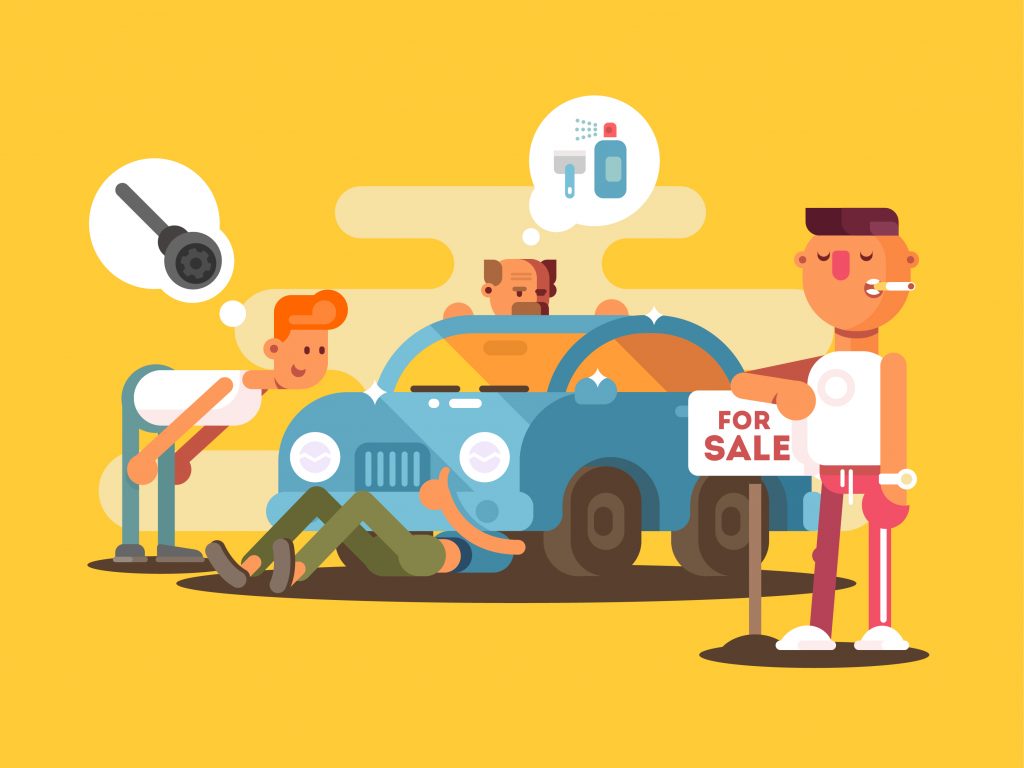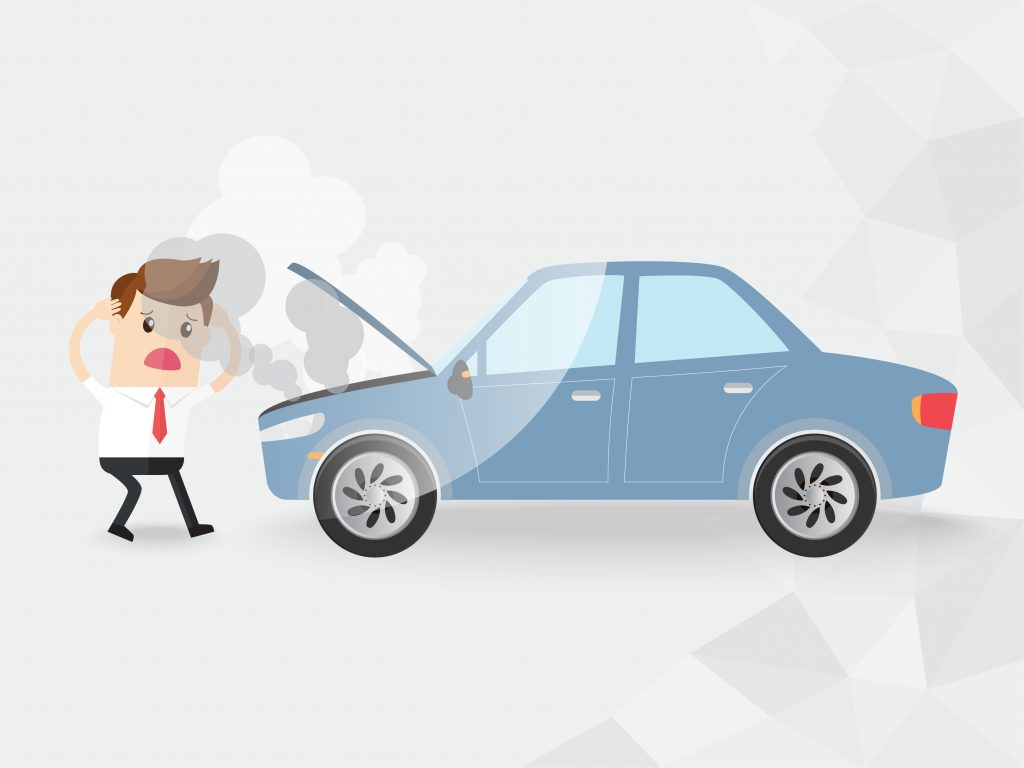2.4 The Disadvantage of Buying a Used Vehicle.
2.0 New or Used

In this article, we take a closer look at the disadvantage of buying a used vehicle.
We noted very clearly in the last article that price will be the biggest factor to buy used. That being said, there is a trade off.
Paying less means that you will simply have to do more work yourself and that you will have to consider more variables: the history of the vehicle.
Regardless of what dealership tells you, they aren’t necessarily looking out for your interests; they simply want to maximize their Profits.
Disadvantage of Buying a Used Vehicle
History of Your Vehicle
When you purchase a used vehicle, even from a used dealership, a mechanic will have to inspect your vehicle. But a vehicle inspection can only tell you so much. The mechanic doesn’t have x-ray vision and doesn’t have the time to take the vehicle apart. He will inspect the main components and make his best judgement. Dealerships purchase their vehicles from an auction or they get them traded-in from previous customers. Neither is required to share the service history, and even if they did, that wouldn’t tell you if the vehicle was driven carefully or floored at every light.
You can pull a Carproof yourself to see what insurance claims were made against the vehicle. A dealership is required to share one with you. But again, its not a complete history and sometimes not all repairs are reported through insurance.
Major Repairs
As we discussed previously, used vehicles might still have manufacturer’s warranty left. Or a dealerships will sell an extended warranty, However, if your warranty is expired or your extended warranty doesn’t cover the repair, that is coming out of your pocket.
A sensor or CV joint might only be a few hundred dollars to repair. But a transmission rebuild or timing chain can easily be a few thousand dollars. And they are time consuming repairs, that leave you without a vehicle.
And as stated previously, a mechanic’s assessment is only good as his best professional guess. It would be impossible for a mechanic to rip apart the entire engine or transmission every time he inspected a vehicle.
Out-Dated Technology
Depending how old your next used vehicle is going to be, its not going to have the latest technology, whether its going to be the emission system or otherwise.
An older vehicle might have a worse fuel economy that its brand-new counterpart. Even the fact that all the components have been worn, will easily worsen a vehicles fuel economy. Combined with an outdated AWD system, lack of an eco-boost feature or older traction control, they can mean spending a lot more at the pump.

Liens and Other Traps
The VIN (Vehicle Identification Number) of a vehicle is unique alphanumeric number that acts as a passport for your vehicle. The warranty, the insurance claims and any loans taken out against the vehicle will be associated with the VIN.
Normally, when a used dealer sells a vehicle, especially when its financed by a lender, they will make sure for you that there are no active liens on the vehicle. This is something that you would have to verify yourself during a private sale and should never be overlooked. Regardless of what the seller might claim.
Legally, whether you purchased from a dealership or private sale, you should always make sure there are no active liens on the vehicle. Check out how liens work and how to conduct a lien search in our Annex.
If there is a lien, then you nor seller actually own the vehicle and the lien holder has the right to repossess, if any debts are in default. In some cases, there can even be multiple lien holders, which can be a costly, legal nightmare for you.

